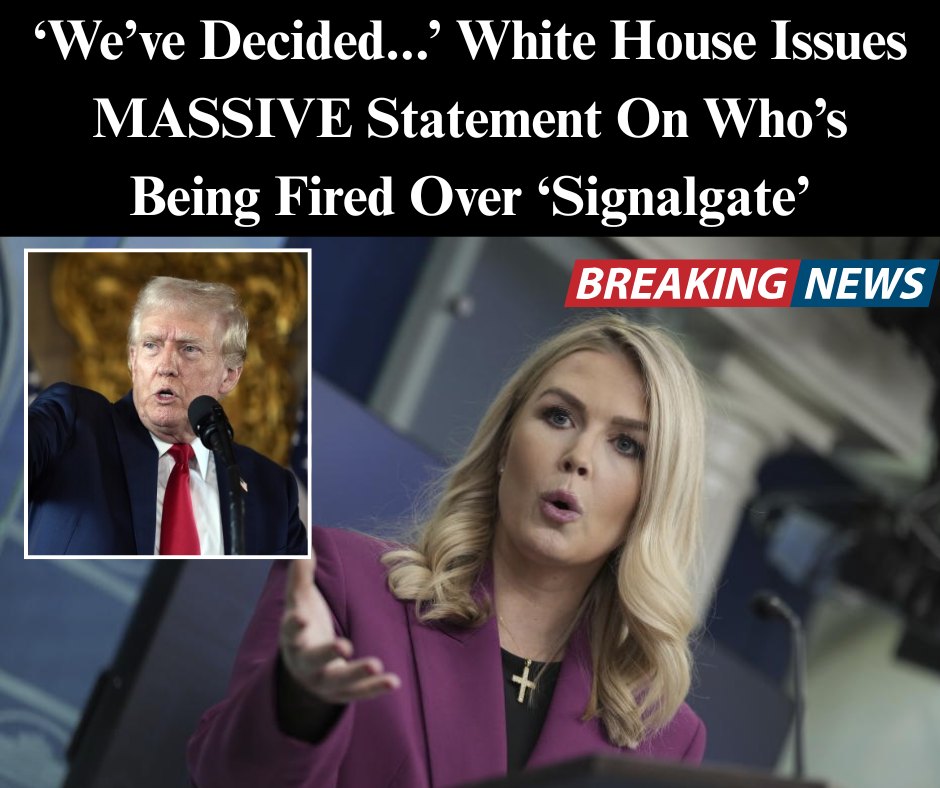Press Secretary Karoline Leavitt announced on Monday that the White House has concluded its review of National Security Adviser Mike Waltz’s inclusion of a journalist in a group chat about airstrikes in Yemen, noting that impending tariffs have already shifted attention away from the issue.
Following the revelation by Jeffrey Goldberg, The Atlantic’s editor-in-chief known for his anti-Trump views, that he was part of the sensitive conversation on the encrypted Signal app this month—despite Waltz’s claim of no prior connection—President Donald Trump and his top advisers maintained a united front, the New York Post reported.
“As the president has made it very clear, Mike Waltz continues to be an important part of his national security team. And this case has been closed here at the White House, as far as we are concerned,” Leavitt told reporters on the White House driveway on Monday.
“There have been steps made to make sure that something like that can obviously never happen again and we are moving forward,” Leavitt added, per The Post. “The president and Mike Waltz and his entire national security team have been working together very well if you look at how much safer the United States of America is because of the leadership of this team.”
Leavitt had earlier stated that the National Security Council, the White House counsel’s office, and Department of Government Efficiency (DOGE) leader Elon Musk were jointly investigating the matter—following Waltz’s claim that Goldberg’s number had been mysteriously “sucked into” his phone. She did not disclose any conclusions from the inquiry.
On Sunday, Goldberg accused Waltz of lying about any previous communications between them, though he offered no further details or evidence, The Post noted.
A Trump administration official told The Post that the president’s decision not to fire Waltz was partly motivated by a desire to avoid giving Democrats a “scalp”—a move that could further fuel the scandal and trigger calls for the dismissal of other Cabinet members involved in the chat.
Goldberg is widely known for a 2020 article in which he claimed that Trump disparaged U.S. troops interred in France as “suckers” and “losers,” alleging that Trump had lied about a helicopter’s inability to fly to a ceremony honoring fallen soldiers from the world wars.
The report was discredited by a Freedom of Information Act (FOIA) release that showed the Navy made a “bad weather call” to cancel the flight, yet Goldberg never issued a correction to the article.

The controversy that dominated political news last week is now being eclipsed by a series of tariffs set to take effect on Wednesday.
Trump has proclaimed April 2 as “Liberation Day” for U.S. trade, as he imposes reciprocal tariffs on foreign nations. Additionally, Wednesday marks the start of his 25% tariffs on auto imports and a similar tariff on goods from Canada and Mexico.
The British government, meanwhile, is scrambling to secure a last-minute post-Brexit trade agreement with the United States in an effort to avoid—or at least soften—tariffs on European imports expected to be announced by President Donald Trump next week.
Since leaving the European Union in 2020, the U.K. has been pursuing a new trade deal with the U.S., though talks had largely stalled under the previous Conservative government. Current Prime Minister Keir Starmer of the Labour Party met with Trump at the White House in February and came away optimistic that a deal could be finalized.
“We’re engaged in discussions with the United States about mitigating the impact of tariffs,” Starmer said as the weekend approached.
Trump appeared to share that optimism, saying a “great” deal was on the table—one that could help the U.K. avoid the looming tariffs. Business Secretary Jonathan Reynolds recently traveled to Washington to continue negotiations, while Trump and Starmer spoke again by phone earlier this week to discuss the path forward.
